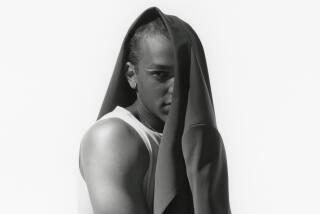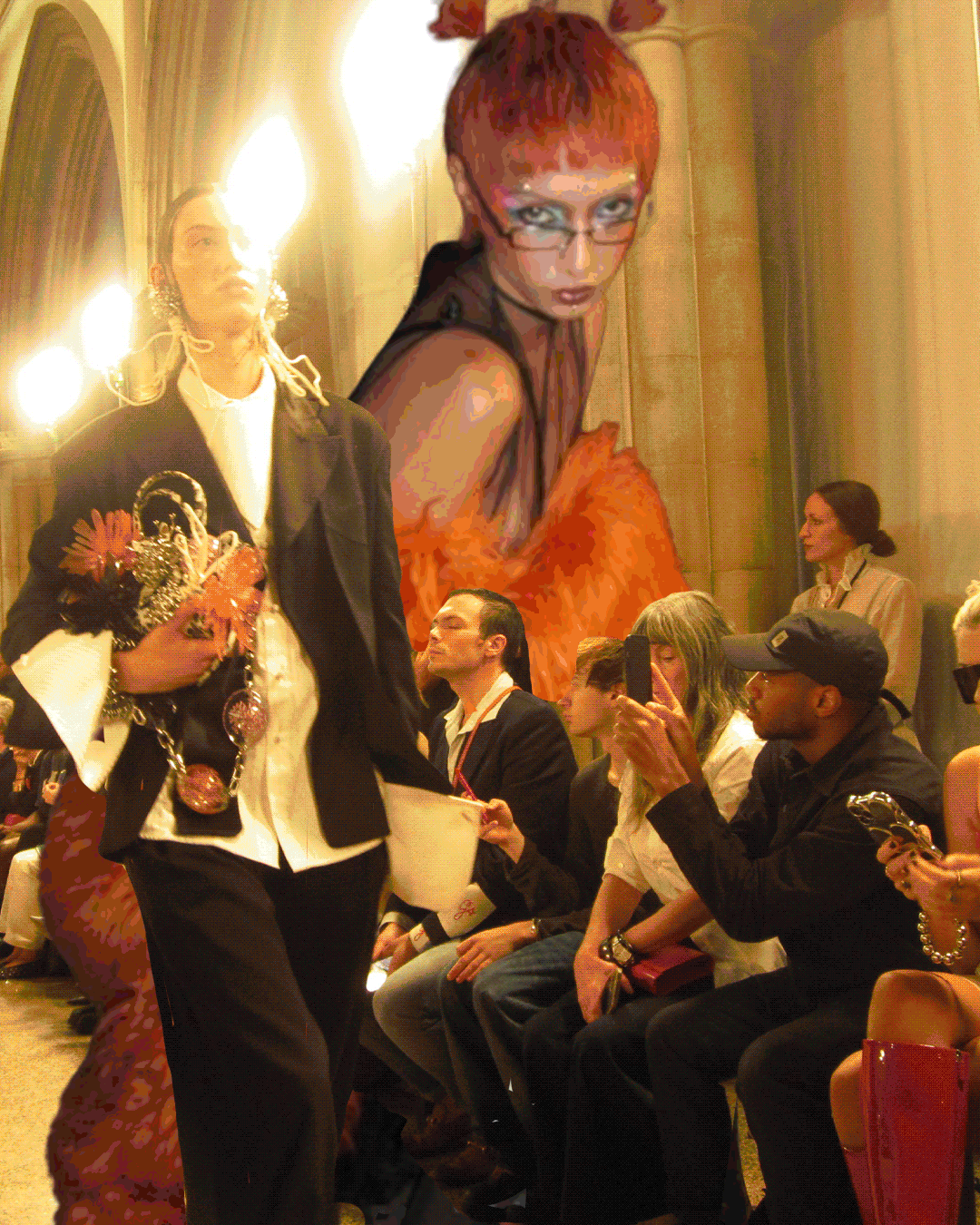Rising to the Occasion : Aisha Majid’s clothing line always dazzles, and her custom wedding designs are enough to make a new bride sigh: ‘She’s wonderful’
- Share via
Aisha Majid left her native Tanzania 17 years ago to settle in California, but she never forgot the colorful fashions and fabrics of her homeland.
So five years ago, she and husband Pete Mhunzi, who teaches African-American history at Pasadena City College, opened Kilimanjaro International boutique on Martin Luther King Jr. Boulevard. They sell imported African garments, Majid’s line of men’s, women’s and children’s ready-to-wear and Majid’s custom designs.
Majid, 36, who is as warm as the colors and prints in her shop, says fashion and business come naturally. In Tanzania, her parents and grandparents ran their own businesses.
On weekends, she and her mother would design and sew clothes for the entire family.
“I love to dress in different styles, different fashions, so clothing was always the main thing,” she says. “I’d sit down and tell my mom what I wanted to wear, and we’d design it together. We wanted to have our own unique style.”
While attending college in Nairobi, Kenya, Majid met her future husband, who was in East Africa to polish his Swahili. Mhunzi persuaded her to move to Los Angeles.
Each year since opening their boutique, Majid and her husband have traveled to Tanzania and Senegal. Majid stocks up on traditional fabrics, inspiration and styles that have proved especially popular. She visits the Masai women in rural areas and watches as they design the clothing she wants, guided by samples or even photos.
Majid favors updates of classical African colors and styles. A $175 double-breasted purple suit from her ready-to-wear collection, for example, is imprinted with gold Egyptian Sphinx images and features black piping and gold-cord buttons.
“Some people want more traditional African styles, others want traditional American styles with a little bit of Afrocentric dressing,” she says.
But Majid is particularly well known for her custom African wedding designs. Her clothes, matching hats, shoes and even jewelry for bride, groom and attendants use bold African colors, patterns and details such as hand-sewn embroidery and beading.
Prices for wedding dresses range from $250 for the simplest custom design to $4,000 for an extravagant outfit. For $250, Majid might provide a wraparound skirt with a top and head wrap made of ashoke or an unadorned dress in white satin or linen.
More expensive dresses feature beading or embroidery, matching jackets, hats and shoes. A stunning gown of raw silk and ashoke (a handwoven cotton interspersed with metallic thread, from Nigeria) with intricate beading along the yoke and hem and matching shoes might cost as much as $4,000. That price also includes a specially designed and fitted hat, a scarf and, perhaps, a beaded Masai necklace.
Michael and Denitha Louis were married last August in custom African outfits of gold and black by Majid.
“I didn’t want to wear white or traditional colors,” Denitha recalls. “I was looking for someone to do an Afrocentric wedding, but fabric stores weren’t any help and seamstresses didn’t seem to know exactly what I wanted.
“Then someone told me about Aisha, and she said, ‘Oh, I know exactly what you want, don’t worry.’ She has this imagination. And she came through. . . . It was beautiful.”
Majid also designed a hat shaped like a fan in the back, matching shoes and dresses for Louis’ three bridesmaids; a dress for her mother; an outfit for her husband, and a dress that Denitha wore on her honeymoon.
In addition, Majid visited Louis’ home before the wedding for a fitting.
“She’s wonderful,” Louis says with a sigh. “I want to go back there, as soon as I get out of debt.”
Debra Ward-Samad married Anthony Asadullah Samad last July in an Afrocentric wedding that included 10 bridesmaids, 10 ushers, a flower girl and a ring bearer, all decked out in matching outfits designed by Majid.
“We’re talking a whole bunch of clothes,” said Ward-Samad. “I wanted something that would reflect a traditional way as well as an Afrocentric kind of way. . . . We talked creatively and drew up some beautiful designs.”
For the groom, who had shopped at Kilimanjaro for years and wears a lot of African-style clothing, Majid made a three-piece, traditional Nigerian outfit called a Grand Buba that has drawstring pants, a caftan-like shirt with a Nehru collar that hits the mid-thigh and a matching robe.
Joyce Drake, who says she discovered the boutique about a year ago, says she was surprised that, in addition to traditional African wraps, the store had smart corporate suits in African fabric that she could wear to her job at an Orange County mortgage company.
“You can wear them anywhere. . . . I can’t walk anywhere without people coming up to me and saying how good the outfit looks,” Drake says.
She says she’s sorry she and her husband didn’t know about Kilimanjaro before they tied the knot: “I would have gone and done an African wedding.”






